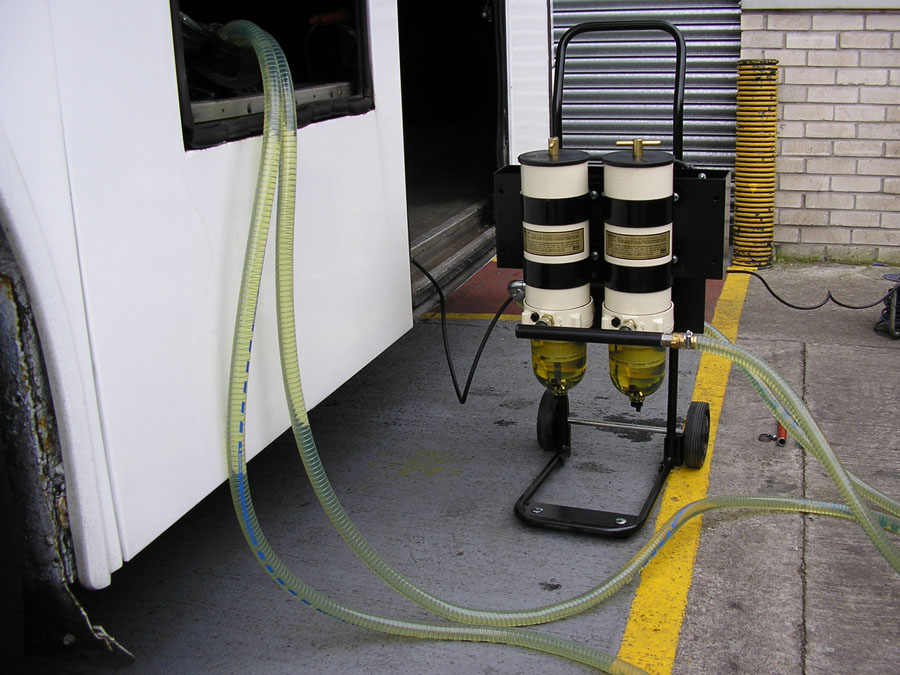When it comes to maximizing effectiveness and performance of the engine, fuel quality is a crucial factor. Over time, diesel fuel can become contaminated with impurities, such as water, sediment and microbial growth which can negatively impact the engine’s performance and cause expensive repairs. This is where polishing the fuel steps in, offering a solution to combat fuel contamination, and to ensure smooth functioning of engines.
Fuel polishing is also called polishing diesel fuel. It involves the removal of impurities and contaminants in diesel fuel. It is a specialized service provided by experts who use modern techniques and equipment to make sure that the fuel is returned to its original condition. The process of polishing fuel enhances the performance of your engine as well as reduces the cost of maintenance and increases equipment lifespan through the removal of harmful substances and making sure that the fuel’s quality is restored.
Numerous fuel polishing services are available to cater to the various needs of industries that rely on diesel fuel. These services are provided by highly-trained technicians with expertise in fuel systems that understand the complexity of contamination in fuel. They can spot fuel problems with their specially designed equipment and in-depth knowledge.
The process of polishing fuel has as its main goal the removal of water, sediments microorganisms, sludge and sludge from diesel fuel. Because of condensation and leakage within fuel tanks and tanks, water can accumulate creating corrosion and degrading the fuel. It also encourages the growth of bacteria, fungi, as well as other microorganisms. Sludge and sediment, on the other hand, can originate from impurities in the fuel or the degrading of fuel components in time. These pollutants can block filters, injectors and other crucial components, resulting in a decrease in engine performance and possible breakdowns.
Diesel polishing typically involves a multi-step process. Fuel sampling and analysis is the first step in order to determine the level of contamination. Once the analysis has been completed, technicians employ filtration systems to remove impurities as well as contaminants from the fuel. The systems employ various filter media and technologies to effectively capture and separate pollutants from fuel, leaving clean and purified diesel.
Regular fuel polishing offers several key benefits. First, it improves the quality of fuel, which ensures that engines are supplied with clean, constant fuel that allows them to burn efficiently. It also increases fuel efficiency and performance. This is a result of reduced emission and cost savings. The second benefit of polishing fuel is that it can reduce the risk of engine damage and failure because of the contamination of the fuel. By removing harmful substances, it helps maintain the integrity of critical engine components by prolonging their lives and reducing the frequency of repair and downtime.
Regular diesel fuel polishing also known as diesel polishing, offers numerous advantages for maintaining the fuel’s quality. It helps firstly remove sediment, water and microbial contaminants that can compromise the performance of engines. In removing these impurities via the process of polishing diesel, the quality of fuel is drastically improved. It also improves combustion efficiency and reduces emissions. Furthermore, regular polishing of the diesel keeps fuel filters from getting blocked and injectors as well as other essential components, thus reducing the chance of damage to engines and costly repairs. Furthermore, by reducing accumulation of sludge and corrosion regularly, regular polishing helps ensure the durability of storage systems. Regularly polishing the diesel fuel could provide a host of advantages, including better efficiency of the engine, lower costs as well as increased reliability.
The services offered by fuel polishing are specifically designed to meet the needs of particular industries and application. Fuel polishing is a solution to a range of applications, from vessels for marine and backup engines to construction machinery and transport fleets. It is crucially important for industries that rely on unreliable and continuous power supply, as well as those operating in remote or difficult environments where the quality of fuel may be compromised.
In summary, fuel polishing is a crucial process that helps ensure the purity and quality of diesel fuel. The removal of contaminants and impure substances improves engine performance and decreases maintenance costs. Professional fuel polishing can help industries to protect their operations, enhance efficiency, and reduce the risk of fuel contamination. So, whether you are managing an entire fleet of vehicles or are operating power systems that require a lot of attention be sure to consider the benefits of polishing fuel to unlock the potential of your diesel fuel and propel your business forward.
